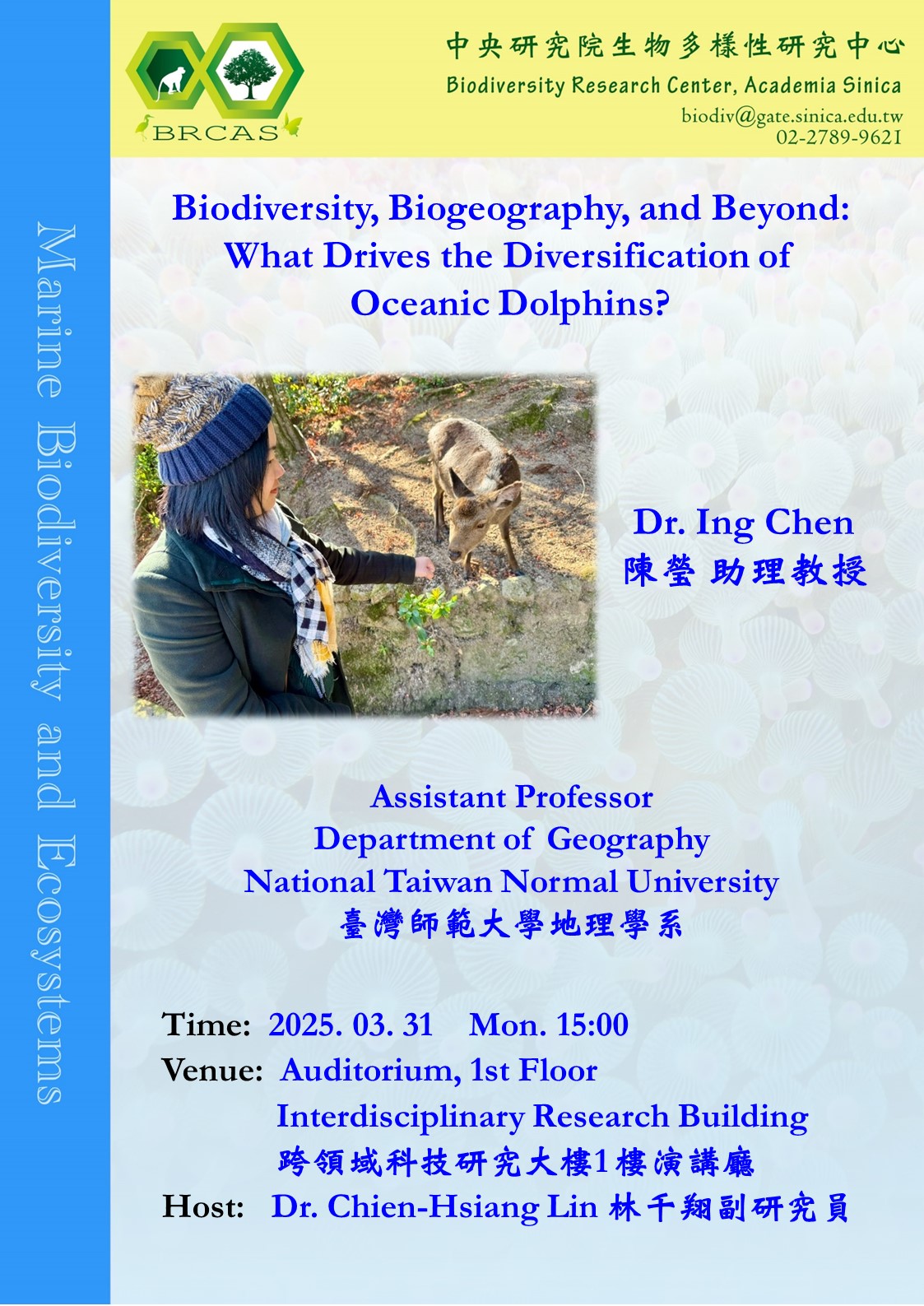- Lectures
- Biodiversity Research Center
- Location
Auditorium, 1st Floor, Interdisciplinary Research Building
- Speaker Name
Dr. Ing Chen (National Taiwan Normal University)
- State
Definitive
- Url
Abstract
Why do some dolphin species exhibit strong population structure while others maintain genetic continuity across vast oceanic distances? What forces drive the evolutionary trajectories of marine mammals, and how can emerging technologies help us uncover biodiversity patterns at multiple scales?
In this talk, I will explore the genetic diversity and speciation drivers of dolphins, focusing on Risso’s dolphin (Grampus griseus), bottlenose dolphins (Tursiops spp.), Fraser’s dolphin (Lagenodelphis hosei), and pilot whales (Globicephala spp.). By leveraging genetic and genomic data from global populations, I investigate how environmental, physiological, and behavioral factors contribute to population divergence and evolutionary trajectories in highly mobile marine species. This research has critical implications for understanding biodiversity, adaptation, and conservation in marine ecosystems.
Beyond population genetics and genomics, I will introduce how environmental DNA (eDNA) is transforming biodiversity research. By integrating eDNA with biogeographic theory, I aim to revisit long-standing ecological questions—such as vicariance pattern, assembly rules, and the theory of island biogeography—from a molecular perspective. These approaches offer a novel framework for studying species distribution, community assembly, and ecosystem connectivity.
Together, genomic tools and eDNA-based methods provide unprecedented opportunities to address fundamental and applied questions in biodiversity science. This research will further develop these approaches to bridge molecular ecology, evolution, and conservation, offering new insights into the mechanisms shaping biodiversity across marine and island ecosystems.









 Home
Home

